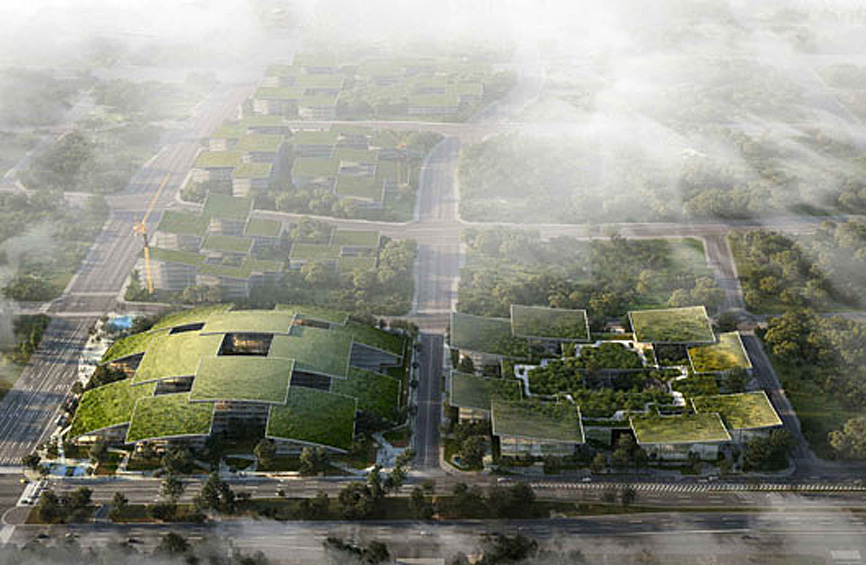Terminus builds smart city in China
- October 12, 2021
- Steve Rogerson

Chinese artificial intelligence and robotics company Terminus Group is building a smart city in south-western China’s Chongqing municipality.
Called AI City, it was created following the trend towards communications technology integration in everyday life, in which AI, 5G, IoT and big data are all making rapid progress. In an urban setting, AI can offer customised services for individuals and remotely upgrade its functions.
AI City also bridges the gap between data silos for individual scenarios and enables cross-scenario data operability, including software and hardware, in addition to helping society achieve carbon neutrality.
The development project is located by the Fengming River in the Financial Street area in Western Chongqing Science City, where smart industry has grown into one of the major economic pillars in recent years. The Financial Street area is the innovation hub connecting smart industries and finance business. It serves as the core function carrier and start-up demonstration model in the high-tech zone of Chongqing. Relying on finance, it aims to lead the agglomeration of high-end service industries by vigorously developing finance-plus businesses.
The hub accelerates the transformation of business models and office scenario services, strengthening the financial role the Science City plays in the region and is nowadays becoming the epicentre of the innovation and venture capital companies, as well as science and technology-backed financial institutions.
In 2020, Terminus launched the first programme as part of its AI City deployment, AI Park in Chongqing. When Terminus was making the plan for AI Park during the pre-construction stage, it used an urban smart planning engine and designed the park as a smart and sustainable zone where nature and technology could co-exist harmoniously.
Terminus is using Tacos (Terminus AI City Operating System) as the digital base to manage the city’s software, hardware and ecosystem, and fill in the missing link between different smart offerings. This will prevent a lack of synergy between offered services and will help optimise the redundant, often excessively expensive construction process. This is not only a management style that leverages open platform operations to reduce the cost of urban smart construction, but also a trend that empowers social consensus to drive futuristic intelligent urban infrastructure.
Tacos is a city-level operating system developed by the company to link the hardware and services to the clouds and ensure the digital synchronisation of intelligent applications in different urban scenarios, including smart vehicles, smart education and smart community.
AI Park will serve as the first phase pilot facility for the entire AI City Cloud Valley development project. The park is equipped with various ICT features, 360-degree robotic services, as well as AIoT-driven management centres. Visitors can experience various smart technologies including smart communities, smart fire protection, smart security services, smart finance and smart ecommerce deployed onto the digital layers operating on the AI Park digital platform to support its functional operations
From the AI Park in Chongqing to the World Intelligence Congress in Tianjin, a growing number of megacities are partnering with Terminus to boost the development of AI cities, such as Wuhan, Deyang-Chengdu and Hangzhou.
The company is at the Expo 2020 Dubai as an advocate of the digitalisation of urban management, which has launched 10,000 intelligent scenarios in cities worldwide to date and accumulated industry experience.
Once the AI City completed, it will not only improve urban life and help the area become more sustainable, but also build a smart industrial platform for the city, promoting the transformation and upgrading of the urban economy.
Moreover, it will provide smart scenarios for the landing and application of many technologies and products in the field of urban science and technology. The aim is for it to provide a platform for further communications between China and other technological partners around the world in related fields.





